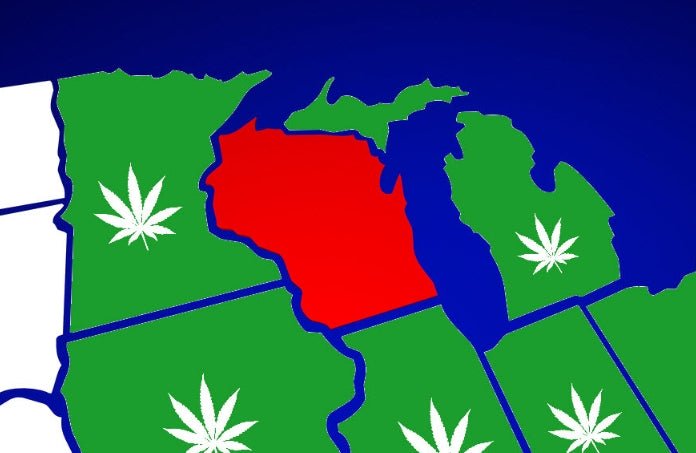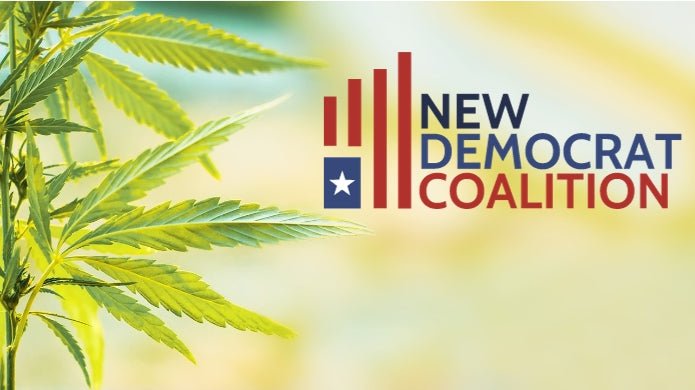Surrounded by states with legal adult-use marijuana markets, the Badger State is in danger of falling behind in the increasingly competitive and lucrative market.

In an effort to keep their state from losing out on the potential economic windfall associated with legalized cannabis, two progressive-minded lawmakers from Wisconsin are determined to bring their state into the future. As first reported by High Times, State Sen. Melissa Agard (D) and State House Rep. Darrin B. Madison (D) filed a bill on September 22 to end the state’s prohibition on cannabis.
At an event held at a Wisconsin hemp farm, the duo announced the legislation, saying that maintaining the status quo poses more harm to the citizens of Wisconsin than marijuana.
Speaking to local News Station WSAW, Agard said, “I’ve said this time and time again, we know that the most dangerous thing about cannabis in Wisconsin is that it remains illegal. For the past decade, I have worked to undo Wisconsin’s antiquated and deeply unjust marijuana policies and put our state on a prosperous path forward.”
"I’ve said this time and time again, we know that the most dangerous thing about cannabis in Wisconsin is that it remains illegal. For the past decade, I have worked to undo Wisconsin’s antiquated and deeply unjust marijuana policies and put our state on a prosperous path forward.”
- Wisconsin State Sen. Melissa Agard (D)
The proposed measure would allow adults in Wisconsin over 21 to legally possess and consume cannabis. Likewise, the bill would establish the groundwork for a regulated marijuana market to launch in the state.
If it passes, Wisconsin would become the 24th state to legalize adult-use marijuana. Several of those states include Wisconsin’s neighbors in the Great Lakes region like Michigan, Illinois and the most recent addition to the newly legal, Minnesota. Agard quickly points out that by not legalizing, Wisconsin is losing significant revenue to border states with legal markets.
“Right now, we are seeing our hard-earned money go across the border to Illinois, Michigan, and Minnesota to the tune of tens of millions of dollars each year. That is money we could be reinvesting to help support our friends and neighbors and make our state a place where people want to live, work, and play,” she added.
"Right now, we are seeing our hard-earned money go across the border to Illinois, Michigan, and Minnesota to the tune of tens of millions of dollars each year. That is money we could be reinvesting to help support our friends and neighbors and make our state a place where people want to live, work, and play.”
- Wisconsin State Sen. Melissa Agard (D)
The measure also creates an excise tax for the privilege of producing, processing, distributing or selling cannabis in the state. In addition, 60% of revenue collected from the tax will be set aside for a segregated pool of money called the “community reinvestment fund.”
For his part, Rep. Madison is focusing primarily on the social and racial injustices perpetrated on mostly communities of color due to the failed policy of prohibition. Following the announcement, he said, “Legalizing cannabis is a matter of public safety and racial justice here in Wisconsin. People in Wisconsin indulge in cannabis use and deserve the ability to buy safe cannabis and use it responsibly without being criminalized. The bill we’ve introduced today lays a solid foundation for those that have been harshly convicted for non-violent possession charges and the ramifications of those convictions.”
"Legalizing cannabis is a matter of public safety and racial justice here in Wisconsin. People in Wisconsin indulge in cannabis use and deserve the ability to buy safe cannabis and use it responsibly without being criminalized. The bill we’ve introduced today lays a solid foundation for those that have been harshly convicted for non-violent possession charges and the ramifications of those convictions.”
- Wisconsin State House Rep. Darrin B. Madison (D)
According to several recent polls, most Wisconsinites are ready to embrace legalized cannabis as well. An August 2022 survey found that 69% of those interviewed support some form of cannabis legalization. Another poll taken in November of the same year by the Marquette Law School determined that 64% of those questioned supported legalizing marijuana.
Along with the substantial poll numbers, the lawmakers also enjoy the support of Democratic Governor Tony Evers when it comes to ending the state ban. In an interview last spring following a failed attempt to pass similar legalization reform, Evers said, “These aren’t fringe ideas, controversial concepts, or Republican or Democratic priorities—they’re about doing the right thing. With a historic surplus comes historic responsibility, and today, when we can afford to do more, this vote is foolish and a wasted opportunity.”
"These aren’t fringe ideas, controversial concepts, or Republican or Democratic priorities—they’re about doing the right thing. With a historic surplus comes historic responsibility, and today, when we can afford to do more, this vote is foolish and a wasted opportunity.”
- Wisconsin Governor Tony Evers (D)
However, the Republican-controlled State House remains the lone hold-out in opposition to the change that most Wisconsin voters want. It is unclear why GOP leadership seems hell-bent on blocking the progress surrounding states seem more than ready to embrace. With Michigan collecting close to $2 billion in revenue from marijuana sales last year and Illinois posting similar numbers, industry advocates and stakeholders are baffled by the lack of economic vision on the part of Wisconsin Republican lawmakers.
The moral battle over whether cannabis should be legal has overwhelmingly been decided, and the proponents of legal marijuana won. Depriving voters of something they clearly want flies in the face of political logic. Then again, no one ever accused politicians of being logical or choosing to do the right thing. In the meantime, Michigan, Illinois and soon Minnesota will gladly welcome Wisconsinites seeking a legal high and will happily take their money in exchange.








































